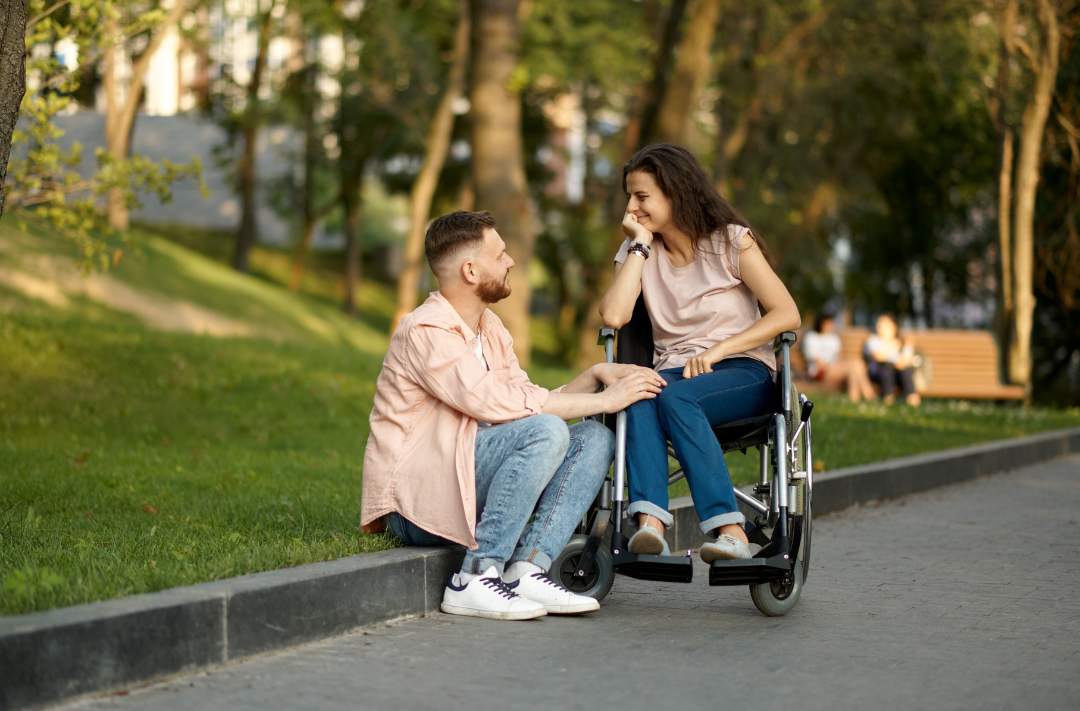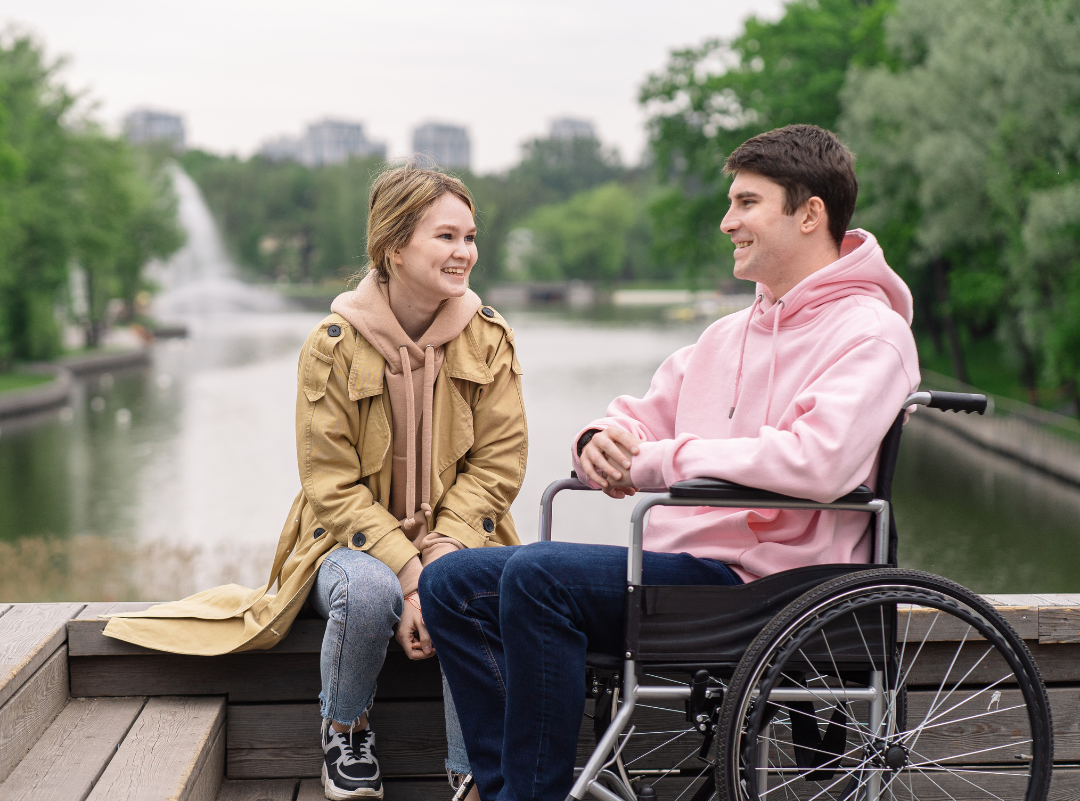Love is universal, but people with disabilities are often left out of conversations about love, intimacy and relationships. The truth is, people with disabilities experience love, intimacy, and romance just like anyone else—but the lack of visibility and inclusion around these topics perpetuates harmful stereotypes, while societal stigmas often add barriers to an already complex journey. Breaking these taboos is more than a matter of awareness; it’s about fostering a society that celebrates the full humanity of every individual, regardless of ability.
At WILC, we see firsthand how individuals with disabilities defy societal expectations every day—achieving independence, advocating for their needs, and building meaningful peer connections. We believe that addressing stigmas is an important step toward greater inclusion and self-empowerment.

Challenging Myths and Misconceptions
Unfortunately, many outdated assumptions still persist about the love lives of people with disabilities. Some of the most common misconceptions include:
- People with disabilities are not interested in or capable of romantic relationships.
- Dating someone with a disability is an act of charity rather than a partnership.
- Individuals with disabilities are dependent, and relationships with them will always require caregiving.
- People with disabilities do not have the same emotional, physical, or sexual desires as non-disabled individuals.
These stereotypes are not only false—they are harmful. They reinforce the idea that people with disabilities should not expect fulfilling, equal relationships. They also contribute to the social isolation many individuals with disabilities experience.
In reality, people with disabilities form relationships in the same ways as anyone else—through shared interests, emotional connection, and mutual respect. Like all relationships, those involving a person with a disability require communication, understanding, and compromise.
Self-Advocacy in Dating and Relationships – with Brendan Klein, Coordinator of Self Advocacy & Community Engagement at Westchester Institute for Human Development
For individuals with disabilities, self-advocacy plays an important role in navigating relationships. Being able to communicate personal needs, set boundaries, and advocate for accessibility is crucial in ensuring that relationships are built on equality and mutual respect.
This is where community programs like Hear Our Voices (HOV) at the Westchester Institute for Human Development (WIHD), become essential. WIHD’s self-advocacy initiatives like HOV help individuals develop confidence in social settings, learn how to build and maintain relationships, and challenge societal biases.
Brendan Klein, at WIHD, shares: At Hear Our Voices (HOV), we recognize that relationships are hard work for everyone. We want our self-advocates to build the skills they need to be successful. We host a Relationship Skills Group on Zoom on the second Tuesday of every month. In addition, we have also hosted speed dating events that offer a safe and fun environment to meet people. At HOV, we believe everyone can improve their skills to be able to have meaningful friendships and relationships.

Advice for Dating and Relationships
For people with disabilities, navigating the dating world can sometimes be challenging—especially when facing accessibility barriers or stigma. Here are a few key reminders:
- Confidence is key. Your disability is part of who you are, but it does not define your worth in a relationship.
- Communication is essential. Being open about your needs and boundaries ensures that both partners are respected and understood.
- Seek inclusive spaces. Whether it’s through disability-friendly social groups, accessible events, or dating platforms that value inclusivity, surrounding yourself with understanding people makes all the difference.
- Advocate for accessibility. If a dating spot, event, or activity is inaccessible, speak up! Your comfort and inclusion matter just as much as anyone else’s.
For non-disabled individuals in relationships with people with disabilities, the most important thing is to listen, learn, and approach the relationship with respect and openness. Disability does not make a relationship “different”—it simply means that, like all relationships, it requires mutual understanding and care.
In conclusion…
Love’s beauty lies in its diversity. People with disabilities are constantly breaking down barriers, creating new norms, and defying expectations in every aspect of life—including relationships. At WILC, we remain committed to supporting individuals with the resources, advocacy, and encouragement they need to thrive in every part of their lives, from their careers to their personal connections.
As we reflect on the stigmas and triumphs around love and disability, let us work toward a world where all forms of love are celebrated and where every individual can embrace meaningful relationships. If you’re looking for support, guidance, or resources related to independent living and self-advocacy, reach out to WILC. Fot more information on WIHD and their programs, visit the WIHD website Self-Advocacy Services – Westchester Institute for Human Development or reach out directly to csn@wihd.org.
